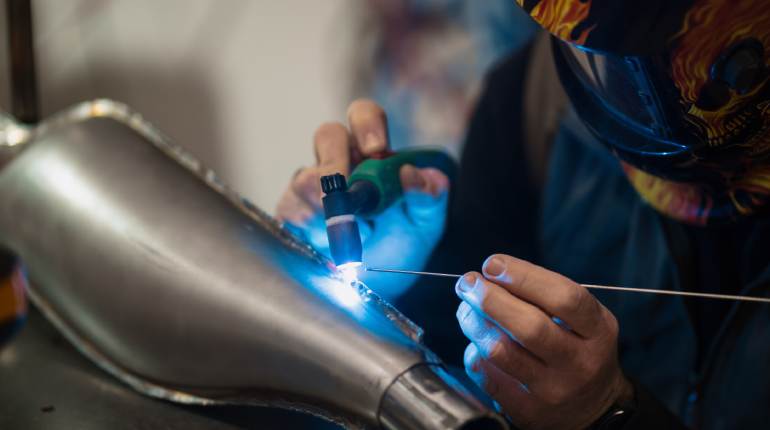Electric vehicles (EVs) are becoming speedily popular, driven by the global effort to reduce carbon emissions and combat climate change. However, the production of EV batteries requires innovative manufacturing techniques to achieve better efficiency and cost-effectiveness. In recent years, lasers have emerged as a key technology that significantly benefits EV battery production.
The precise control proffered by lasers in EV battery production is a significant advantage. It is crucial to ensure that battery cells are cut to the correct size and shape to fit into the vehicle’s battery pack. By programming lasers to make these cuts, an incredibly precise result can be achieved, reducing the risk of waste and increasing the overall efficiency of the production process.
Laser-based welding
The utilisation of lasers in battery production proffers an additional benefit, which is their capacity for welding. The welding of battery cells is a crucial stage in the manufacturing process, as it is essential to guarantee that the cells are securely connected to one another to enable the efficient transfer of energy. Laser welding provides a highly precise means of creating strong, durable welds that ensure the correct functioning of the battery cells, preventing degradation over time that could negatively affect the vehicle’s performance.
Utilising lasers in battery production can ensue in cost savings. Lasers offer high-speed cutting and welding capabilities with precise accuracy, which can reduce material waste during production, leading to cost savings. Furthermore, as a highly energy-efficient technology, lasers consume less energy during operation than other manufacturing equipment, resulting in considerable cost savings in the long run.
Promoting a greener earth
Using lasers in battery production proffers another merit in that it is a more eco-friendly technology. Compared to other manufacturing equipment, lasers generate less waste. Furthermore, since they are energy-efficient, they require less energy to operate, reducing the manufacturing process’s carbon emissions. This advantage is particularly crucial in the production of EV batteries, as it aligns with the overall objective of developing more sustainable transportation options.
“According to the 2023 Global Automotive Consumer Study by Deloitte, about 20 per cent of Indians are fervid to procure a hybrid electric vehicle while only 8 per cent will set for an all-battery powered electric vehicle (BEV).”
As the clamour for EVs continues to augment, laser-based manufacturing techniques will likely become more widely adopted in the automotive industry. This will not only improve the efficiency of battery production but also contribute to the reduction of carbon emissions. Dynotech holds pride in being the pioneer in facilitating all ranges of laser equipment that makes the process of EV battery manufacturing more efficient. Visit our website to learn more at https://www.dynotech-solutions.com/.

